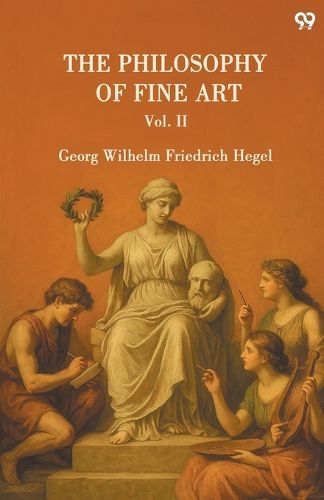Readings Newsletter
Become a Readings Member to make your shopping experience even easier.
Sign in or sign up for free!
You’re not far away from qualifying for FREE standard shipping within Australia
You’ve qualified for FREE standard shipping within Australia
The cart is loading…






The philosophy of fine art Vol. II presents art as a vital expression of human intellect and spirit rather than a trivial or decorative pursuit. Emphasizing that art holds a position above natural beauty, the work argues for its philosophical importance as a reflection of truth and consciousness. It elevates aesthetics into a serious discipline, insisting that beauty in art is not derived from imitation but from the creative power of the human mind. The exploration insists that art is not merely emotional or ornamental but intellectual and spiritual, belonging within the highest realms of human thought. It challenges dismissive views of art as superficial, establishing instead its role in shaping how individuals perceive and relate to ideas of truth, self, and existence. The foundation laid in this volume reframes artistic expression as a key to understanding human culture and cognition, asserting that aesthetics deserves the same rigorous analysis afforded to science or ethics. The translator's discussion reinforces the significance of preserving Hegel's original depth in conveying this complex philosophical stance.
$9.00 standard shipping within Australia
FREE standard shipping within Australia for orders over $100.00
Express & International shipping calculated at checkout
Stock availability can be subject to change without notice. We recommend calling the shop or contacting our online team to check availability of low stock items. Please see our Shopping Online page for more details.
The philosophy of fine art Vol. II presents art as a vital expression of human intellect and spirit rather than a trivial or decorative pursuit. Emphasizing that art holds a position above natural beauty, the work argues for its philosophical importance as a reflection of truth and consciousness. It elevates aesthetics into a serious discipline, insisting that beauty in art is not derived from imitation but from the creative power of the human mind. The exploration insists that art is not merely emotional or ornamental but intellectual and spiritual, belonging within the highest realms of human thought. It challenges dismissive views of art as superficial, establishing instead its role in shaping how individuals perceive and relate to ideas of truth, self, and existence. The foundation laid in this volume reframes artistic expression as a key to understanding human culture and cognition, asserting that aesthetics deserves the same rigorous analysis afforded to science or ethics. The translator's discussion reinforces the significance of preserving Hegel's original depth in conveying this complex philosophical stance.